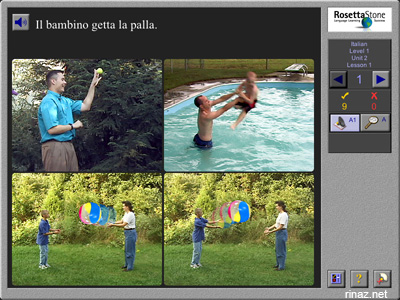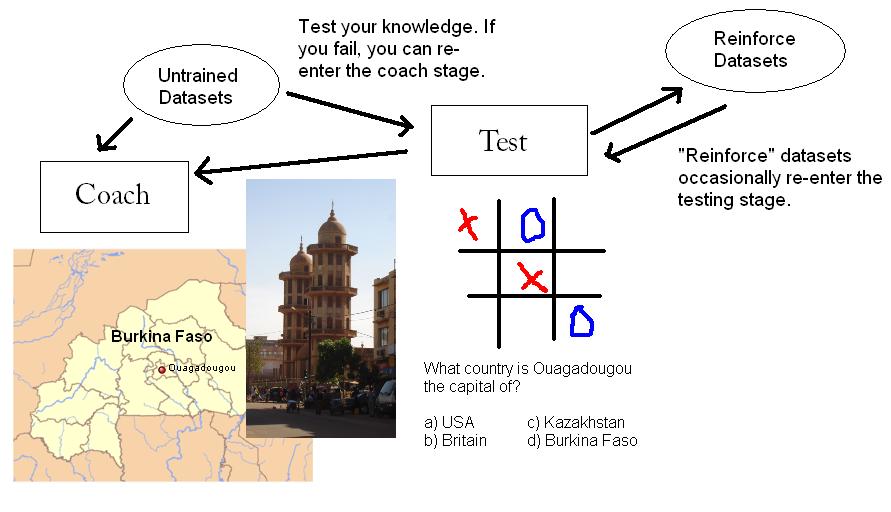ProjectProposal-JoshuaKwan
From CS 160 Fall 2008
Contents |
Individual Project Proposal: Learning About the World
Americans are boors. If you ask the average American anything about parts of the world that aren't in the USA, they will likely get it wrong. Like people who think Shanghai is in Japan, and that Paris is the capital of Italy. This proposal suggests a way to encourage people to learn about foreign cultures using minigames that can be played and concluded very quickly whenever a user has free time. With regular exposure to elements of foreign culture, people will recognize those elements in daily life.
Acknowledged influences: WarioWare game (many random mini-games), The Rosetta Stone (language learning with association), All Look Same (site quizzing people on how to distinguish East Asian faces as Chinese, Japanese, or Korean)
Target User Group
While the idea came about thinking about how Americans lack exposure to foreign culture, all kinds of people can benefit from this game. I also want to target people who don't usually want to play games or have time to play games for long periods of time (i.e. very casual "gamers" who don't even own a console of any sort.) The barrier of entry must be very low on all fronts.
Problem Description
See the intro - the main "problem" is that people are not as aware as they should be (in my opinion) of elements of foreign cultures. If you sit them down and make them learn about it, they will think it is a waste of time. Yet, they can easily be made fools when encountering situations that require knowledge or context from foreign cultures. So, we solve both problems by presenting a compelling means of education that also doesn't take much time to participate in and is easy to use.
Problem Context and Forces
Why are many people, um, culturally disadvantaged? It turns out that most people that are past the age of formal education acquire their knowledge of most things from television or the Internet. It's generally acknowledged that most TV that people watch (prime time stuff) is devoid of educational value - people who watch stuff like TLC, Discovery, etc. are not the norm. Then, while the Internet helps a little with allowing people to explore media from abroad independently, there is much room for complete misunderstandings. What is needed is a formalized means of education on this subject that can be absorbed piecemeal.
Solution Sketch
Ideas for minigames. Ideally, there would be a dynamic element to the game where new minigames can be streamed over the Internet to current users to keep the game as a whole fresh.
- Tic-Tac-Toe: The user is asked to match a country name to capital, a foreign food to its country, etc - anything from a dataset - in order to place his/her X or O on the board. If the question is answered incorrectly, the X or O will be placed randomly and the user will likely lose! The game will be played in a "best of 5" mode so that it isn't frustrating for users.
- Bejeweled Hell: (Probably not feasible for copyright reasons.) The user is given a 5x5 Bejeweled board, which is likely to become unsolvable very quickly. When it becomes unsolvable the user gets a chance to answer a culture question in order to clear parts of the board randomly and add new blocks (as if a Bonus were achieved.) The board grows in size and resets if a question is answered correctly, and shrinks otherwise, which changes the likelihood of getting an unsolvable board. When the board fills the screen, the user wins, or if the board is too small to play on, the user loses.
- etc... I am guessing that if this becomes a real project, we would only want to try for 6 or fewer total minigames. Any more would require too much manpower.


